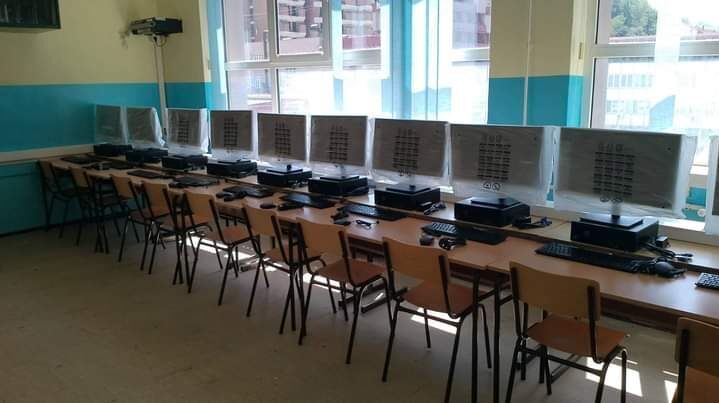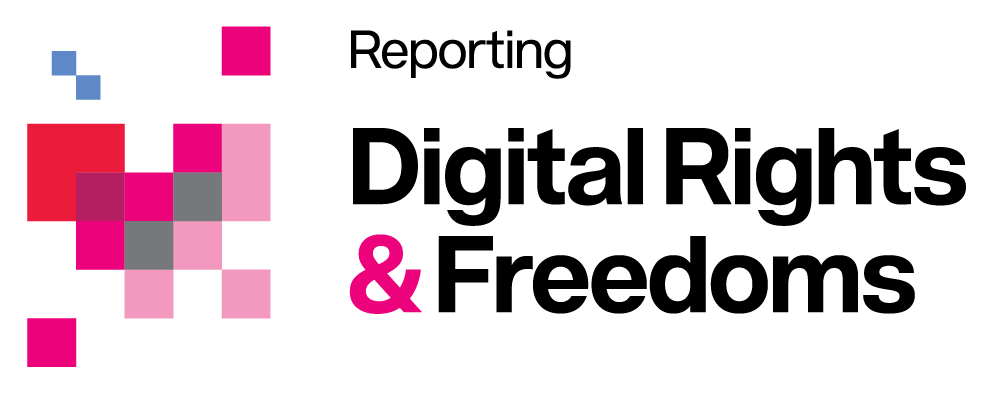How do parents become digital allies to their children? – Society

What does it mean to be digitally written? Is digital literacy associated with traditional literacy? When is the right time for the digital literacy of the child? What is to behave safe in a digital environment and where are the borders of parental control?
These are just some of the questions and the dilemmas offered by the answers Publication « Digital Literacy »created with the aim of making parents of elderly elderly and other legal representatives, as well as everyone involved in their education and education, and strengthen them to be competent in the Allies of their children in digital space.
Recognizing parents as significant actors in digital growing up children, guidelines and tools for better understanding, the protection of online risks, as well as the children's control, as well as encouraging children on critical thinking, creatively and constructive use of technology.
Already at the very beginning, the author of this publication Dobrinka Kuzmanović, in Belgrade, which has been dealing with the mentioned topics, « Breaking » myth about today's generation children have advanced digital skills.
– There is still a naive belief that children, due to the fact that they use digital devices daily, possess advanced digital literacy skills. However, research indicates a global trend that within a formal digital technology education, therefore, students do not acquire proper digital competencies in the school context, although it is provided by the program of teaching and learning – says Dobrinka Kuzmanović.
These allegations illustrate the recent international research of computer and information literacy of Icils, which, among other things, has already been involved that two-thirds of Serbia does not have digital competencies, necessary for independent, safe and critical use of digital technologies in school and out.
The same research testifies that none of the participating countries from the first cycle (2013) until the last (2023. years), did not record in the digital literacy of the students. This finding says that children do not acquire appropriate digital competencies through the daily use of digital communication and entertainment devices, and that it is not crucial how often technology, but for what purposes they use.
The quality of the time in front of the screen is more important than the amount of time, Kuzmanović points out.
The one in the publication notes that the Alpha generation, whose oldest members were born in 2010, came into contact with digital technology, before he could recognize his own face in the mirror, pronounce the first step, and hold the mobile phone in one hand.
Says today's parents, although they have grown in the digital world themselves, often surprised by intuitivity and easily with which children handle digital devices, which makes them to overestimate their digital literacy.
On the other hand, children are prone to underestimate the digital literacy of their parents and teachers, considering them less skilled in the digital environment.
– Digital literacy is a very complex and wide concept. The publication that is in the form of a brochure is written drink, unscientific language, in order to be accessible to parents of different levels of education. I rely on the European Framework of Digital Competences (Digcomp), which is the most widely accepted in Europe and includes five areas: information, communication and cooperation, digital content, safety and problem solving in digital environment.
As one of the key messages that this publication sends parents it states that education and support are the main tools that can help children when it comes to safe use of the Internet.
– When I say education I mean education in a family context, as children in an increasing age start using digital technologies and we cannot wait for digital competencies to acquire within the formal education system. If children have access to digital devices since preschools, then we can't just let them use them. As we can't let them go to the adult pool if they don't know how to swim, and even when they learn, they are « an object » – Metaphorically explains our interlocutor.
It notes that the parents themselves must improve their own digital competencies, if they want to be digital mentors, ie allies of their children.
– I used the term digital allies in the publication because it really is a process through which parents learn from children, and children from parents. Certainly children have something to learn from their parents. Although they may not use all applications used by children, or everyday, parents possess some other skills such as critical thinking, general knowledge, experience, wisdom that are useful in the use of digital technologies – Kuzmanović points out.
He adds that in the brochure also looked at the information literacy, which is one of the aspects of digital literacy, especially nowadays when we are « overwhelmed » information on the Internet, so it is not easy to assess their accuracy and reliability.
If adults are hard to handle the world of media manipulation, sensationalism, « spinovations », « bots », fake news and « clickback » titles, for children is an even bigger challenge, Zaža Kuzmanović.
An important segment of the whole story that is also mentioned in the digital environment, but also the responsible use of technology, and how to note, how much the device consists of electricity and how much the natural environment is also polluted.
On our comment that many parents « in combat » is noticed by the time that children are opposed to such strategies, but that it is not acceptable, or effectively, because children find ways to « bypass » technical measures Protection.
– This does not mean that children should be enabled in front of the screen as much as they want, especially if it goes to the detriment of other activities that are important for optimal functioning and development – Note Kuzmanović.
It was a segment of the publication so-called anxiety of digital parenting and the consequences of irrational fear and excessive care of parents regarding the use of digital technology.
It advises parents to instead of excessive restriction and ban, apply the so-called. Social mediation, to talk to a child about his activities on digital devices, support him in front of the screen and enable the child to participate in the creation of family rules on healthy and safe use of the Internet (how to quantize time and quality).
To our remark that schools that do not allow mobile phones in the media often promote as examples of good practice, it says that there is prohibitions when it comes to digital technology in the school context.
Kuzmanovic reports a conclusion of a metaanalysis recently read – that there are no empirical analyzes that unequivocally support the justification of digital technology limitation.
– The focus is more placed on how the digital environment is designed and how children are abused, their attention and time, because the media are not in line with the needs of users, but are oriented, above all, to commercial interests. Digital rights are a key topic that is spoken to at the international level, above all, we need to deal with children and how many children's rights are held for children. There is the core of the problem. You have, for example, a video game with a pegic indicating that they are allowed to play preschool children, and they can access commercial content and advertisements, with the possibility of buying through Interest, which is inadmissible. It is a rough abuse of children. All this is part of the story of children and young people in a digital environment and how much care is taken of – Kuzmanovic points out.
Digital compass
« Digital literacy » is the first of three planned publications, within the edition « Digital Compass for Parents », which is jointly prepared by UNICEF, Ministry of Education, Ministry of Information and Telecommunications, Center for Educational Policies, with the support of Yettel. In the coming period, two more publications for parents will be published: « Social Networks » and « Artificial Intelligence ».
Follow us on our Facebook and Instagram page, but also on X account. Subscribe to PDF List release today.







